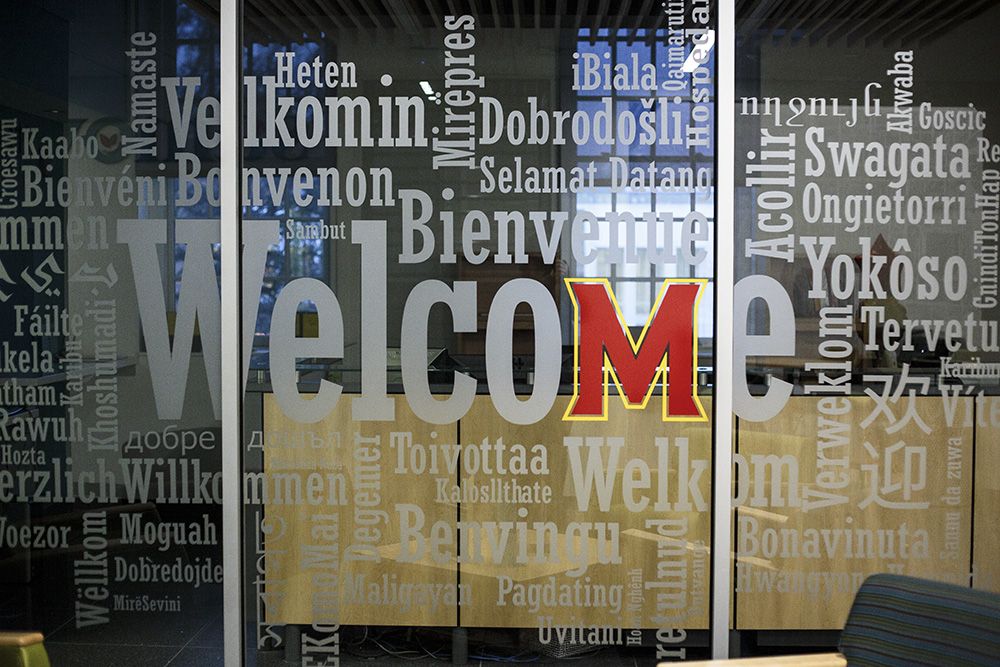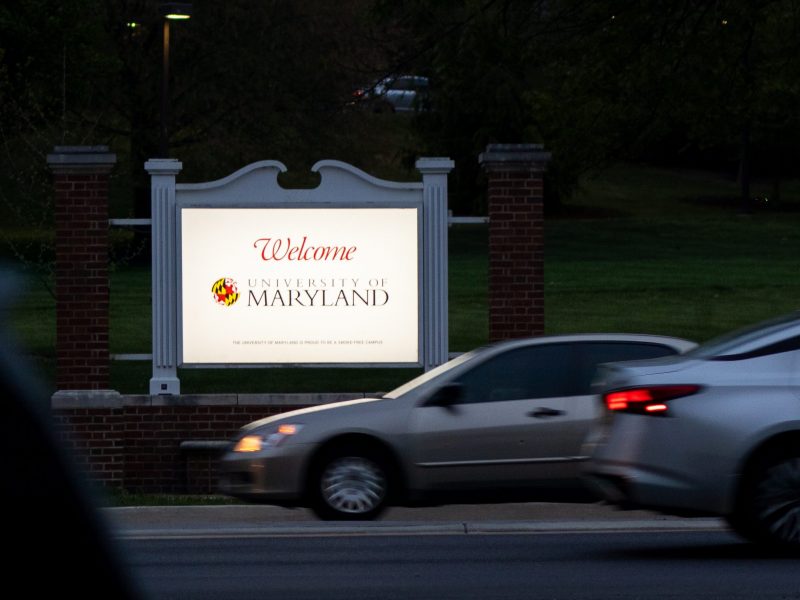More than a year after the University of Maryland bypassed review mechanisms to impose a fee on international students, members of this population have mixed feelings on whether the money raised has benefited their community.
The fee — $125 for full-time international students and $62.50 for part-time students — generated about $400,000 last fiscal year, when it was first imposed, and university officials expect that sum to increase this fiscal year.
About half of the funds raised last year went to the Office of International Affairs and International Student and Scholar Services, said Ross Lewin, the associate vice president for international affairs, and were used to help international students integrate into the campus community.
The funds paid for a new visa advisor, higher staff member salaries and the expansion of a part-time graduate assistant position to a full-time.
“Anytime ISSS can expand its advising staff, international students benefit by lowering the ratio of students … or scholars to advisor,” ISSS Director Susan-Ellis Dougherty wrote in an email. “The impact of the hire creates more staff time to assist students, through individual appointments, topical workshops and cultural programming such as International Coffee Hours.”
[Read more: Counseling Center: UMD’s international students face unique mental health struggles]
The remainder was split between the graduate school, the Office of the Registrar, the Division of Administration and Finance and the enrollment management office.
“These units had all indicated that their ongoing service delivery had increased significantly in recent years because [of] an influx of international students and the growing complexity and time requirements related to administering their on-campus activity,” wrote Cynthia Hale, the associate vice president for finance and personnel in the provost’s office. “This is precisely the situation that prompted the imposition of the fee.”
They’ve also gone toward purchasing new software that officials say makes it easier to book J-1 or F-1 visa advising appointments.
Students, researchers and professors who are attending this university under cultural and educational exchange programs use J-1 visas, and other international students use F-1 visas. In Fall 2017, 91 percent of international students at this university used one of these two visas, Lewin wrote in an email.
The money also helped upgrade the office’s chat service, Dougherty wrote in an email. The chats allow ISSS officials to remotely assist international students that have been admitted to the university or are waiting for immigration documents, and the update allows more students to use it.
But Graduate Student Government Legislative Affairs Vice President Roozbeh Bakhshi said this doesn’t justify the fee’s creation.
“It’s not a premium service they are providing to support F-1 and J-1 visas — it’s their fundamental purpose,” said Bakhshi, an international student from Iran. “They cannot come and say ‘Hey, we need some extra fee to do our basic functionality.’”
[Read more: “I feel humiliated”: UMD housekeepers say they’ve been rebuked for speaking Spanish]
For undergraduate international students, the fee is tacked onto the roughly $972 in mandatory fees paid by those taking nine or more credits. It sparked controversy when it was introduced early last year.
Then-GSG President Stephanie Cork said it did not go through the Committee for the Review of Student Fees — the process mandatory fees are required to follow — and because of that, it didn’t get student input.
Lewin said the way the revenue was spent validates the fee. Part of the revenue went toward erasing a deficit in the office, which he said was caused by an influx of international students to the university, many of whom required assistance with tightened national immigration regulations.
Between 2010 and 2018, the proportion of students who aren’t U.S. citizens or permanent residents — the parameters used for the fee — increased from 8.2 percent to 12.6 percent. For the current semester, 5.2 percent of undergraduate students and 34.4 percent of graduate students fall under this umbrella.
Bakhshi said he hasn’t noticed any new events or activities for international students from ISSS since the fee was imposed last year.
Dougherty wrote that the office has used funds to expand existing programs, like their welcome event and orientation for international students. The ISSS also used revenue to take over the administration of an English language program, which was on the chopping block due to state budget cuts, and became the co-sponsor of another.
Ming Zhao, a quantitative finance masters student and international student from China, said she participated in one of these English language programs last fall and found that it helped her transition to life in the United States. She participated in the ESOL Conversation Program, an informal group of international students who meet weekly and discuss topics like their favorite TV shows and movies to practice English.
“If the school can use this money to do something good for international students, [the international student fee] can be valuable,” Zhao said.
Now, she’s planning to request some of the revenue generated by this fee to turn the roles of president and vice president in the International Student Career Assistant Alliance — the club for which she is now president — into graduate assistantships, which would make them paid positions.
Since only university units can request money, Xu Han, the student affairs vice president for the Graduate Student Government, is helping Zhao write a proposal to send to the Office of International Affairs, who might in turn submit a proposal for funding.
Han, an international student from China, also submitted his own funding proposal to the office, which called for using some international student fee revenue to hire five to seven peer mentors for these students.
He plans to submit a resolution at the GSG’s meeting in January to propose creating a committee of undergraduate and graduate students to supervise how money from this fee is spent.
“This would be a reflection of shared governance,” Han said. “It’s in everyone’s best interest to support shared governance.”



